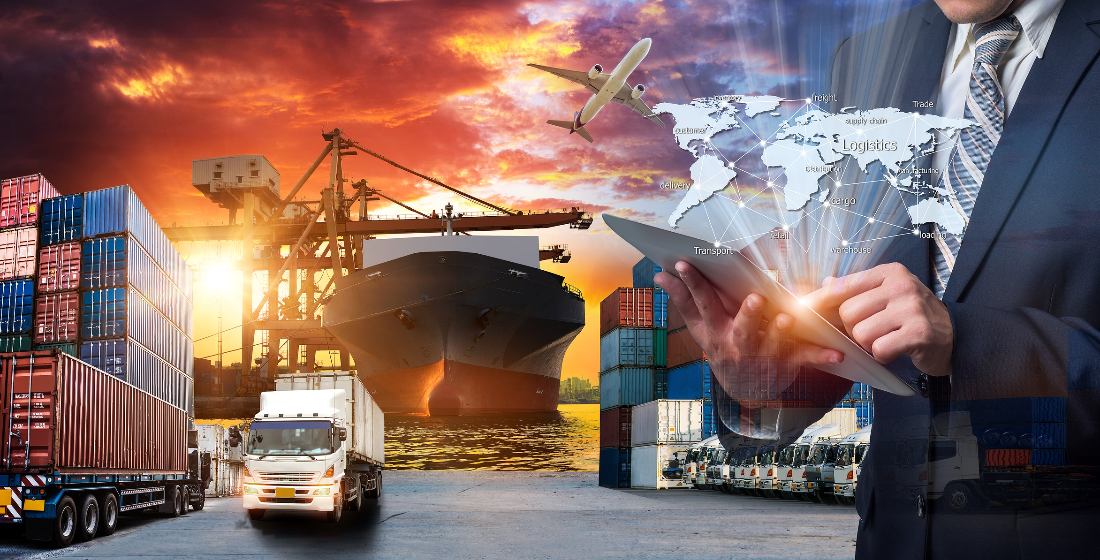Trade finance: oiling the wheels of global trade
Trade finance has many challenges to overcome and the sector knows where it needs to target with this overhaul. Tackling these areas to improve the trade climate will not only bring huge opportunities in trade but also help boost global GDP considerably.

Trade and trade finance has been through turbulent times in recent years, and this year it has had the added massive shock of the Covid-19 pandemic. This has come on the back of a raft of recent sanctions, tariff tit-for-tats, non-tariff barriers, increased protectionism, geopolitical spats/hegemony and of course the US-China trade wars which has grotesquely spilled out across global supply chains. Consequently, growth in global trade has suffered considerably.
Moreover, one recent report declares that the global economy will lose up to $10 trillion in GDP in 2025 unless governments repeal or reduce tariffs and non-tariff barriers that currently obstruct global merchandise trade. (See more on this HSBC and BCG report below.)
Coupled with all the baggage above there are of course both challenges and opportunities. The trade industry has remarkable resilience. Trade will always go on and it needs financing – and like any big vehicle it also needs regular oil on the wheels, good maintenance and structural repairs where necessary. And the nature of this pandemic has helped push the trade sector to look at itself quite closely and try to speed up some long-running repairs and reforms.
Perhaps most noticeable from an operational point of view has been the need for greater digitisation and the speeding up of the entire process in order to improve standardisation, harmonisation and transparency across the breadth of trade finance (see below).
Trade is now very much at the centre of a global conversation. That is why TXF is presenting TXF Global Trade Virtual 2020 - a festival of debate and relationship building, for leaders involved in international trade - from 8-10 December 2020. We at TXF see it as our responsibility to provide a global platform that will allow this to occur. We hope you can be a part of something new this December.
This is a fully virtual event, which allows uncapped, senior level participation from all corners of the globe. It also means we have the opportunity to deep dive into a multiplicity of topics in real detail, without the usual limitations brought about by a physical venue. We expect corporates, financiers, regulators, investors, leaders, and most importantly those who care about trade and the ability to finance it.
The event has tiered levels of access, allowing you to participate in two ways. The first way (Tier 1) is to apply for a complimentary standard pass, granting you access to live and on-demand content, as well as interactive idea labs (limited number of passes available per institution). You can apply for your complimentary standard pass here.
The second way (Tier 2) is registering to upgrade to a full networking and content pass, granting total access to TXF's virtual event platform, including full delegate list, meeting rooms, all live and on-demand content, interactive idea labs, plus your own virtual private meeting room, video conferencing, networking roulette, and the ability contact fellow event participants directly via the interactive guest list. Please contact marketing@txfmedia.com for more details and pricing information.
Protectionism damaging global growth
There is much that needs to be done globally to improve the climate for improved trade conditions and better access to finance. As noted above, according to a recent report for G20 governments entitled ‘The $10 Trillion Case for Open Trade’ undertaken by Boston Consulting Group (BCG) and HSBC, global trade stands to lose out massively unless protectionism measures currently in place are reduced or withdrawn.
Under the research carried out one scenario assumes a high level of open and rules-based trade, and the other assumes the maximum plausible level of trade restrictions, including a rise in average global tariffs, the continuation of tariffs associated with US-China trade tensions, and the implementation of few new trade-facilitating measures.
In the first year, the two scenarios have similar economic impacts, but then they diverge. Under the protectionist scenario, the value of traded goods levels off, and so does GDP. Under the open trade scenario, trade value grows by 2% to 2.6% per year, with GDP following at a growth rate of 1.8% to 2.3% per year. The research takes into account only merchandise trade. If services trade were included, the value of easing trade restrictions would be even more material.
“In a global economy that is already struggling with the impacts of the Covid-19 pandemic, our analysis shows that open trade delivers benefits to every country, as well as to the overall global economy.,” says Sukand Ramachandran, a BCG MD and senior partner. “The additional growth we calculate from open trade translates into jobs around the world.”
According to the WTO, import-restrictive measures implemented since 2009 and still in force affect about 10.3% of G20 imports, worth about $1.6 trillion.
As part of a roadmap for action, the report lays out five steps that world leaders must take to maximise the health of the global economy over the next five years and beyond:
- Strengthen international institutions, including the WTO, so they can keep pace with the new challenges businesses face globally.
- Rethink the rules of trade to create a better, more enforceable rulebook that rolls back protectionism, supports open markets, and ensures a level playing field globally
- Ensure that technology fosters the growth of e-commerce and digital trade, by developing infrastructure, skills, and universally accepted legal frameworks and standards for digital trade.
- Promote the export of services and nonphysical goods, by reducing services trade restrictions, encouraging a common understanding on intellectual property regulation, adopting shared standards for data localization, and abolishing customs duties on electronic transmissions.
- Promote the positive effects of trade in society, by aligning trade and investment rules to spur innovation, inclusive growth, and technologies that minimize harmful environmental impacts.
Natalie Blyth, HSBC’s global head of trade and receivables finance, comments: “It’s critical that trade play its part in securing the post-Covid-19 economic recovery - and more open policies would give the global economy a head start measured in the trillions of dollars.”
Solutions to the trade finance gap
Coupled with the above is the urgent case to help close the widening global trade gap. In figures released in July this year, the ICC and the WTO conservatively estimate that financing capacity ranging from a lower end estimate of $2 trillion to an upper end estimate of $5 trillion will be needed to fill the trade finance gap. Developing countries and MSMEs are the most affected by this shortfall.
Following the Business 20 (B20) Saudi Arabia meeting in early July, the parties there together with the ICC and the WTO released a paper entitled ‘Mind the Trade Finance Gap’ where they called for solutions to reduce the trade finance gap with the private and public sector actors to work together to reduce it.
They noted: “The restoration of cross-border trade will undoubtedly be vital in driving a global economic recovery in the wake of the Covid-19 pandemic. A return to trade-led growth will hinge on creating enabling conditions for businesses to import, export and service international markets.”
In terms of filling the gap, and given the scale of the shortfall in global trade finance, it was suggested that the public and private sectors should work together to:
- Enable a rapid transition to paperless trading by: (a) making progress in removing legal requirements for trade documents to be in hard-copy paper format; and (b) fast-tracking the adoption of the Uncitral Model Law on Electronic Transferable Records to provide a sound legal basis for the use of e-documents in the processing of trade finance transactions.
- Exchange views on how regulatory authorities could help mitigate constraints hindering the deployment of essential trade finance - particularly to MSMEs.
- Share risk to support trade finance during this period, especially among export credit agencies, multilateral development banks, and private sector banks, including in the short-term segment of the market.
- Further scale development bank schemes, if possible, to provide risk mitigation and liquidity for trade finance transactions, especially in countries that need it the most.
In concluding the communique, the parties noted: “Given the scale of financing required to support a rapid rebound in global trade flows - which may potentially reach the upper end of the ICC estimate of $5 trillion - we encourage all actors to take proactive steps to prime the trade finance market to ensure it can play a central role in driving a post Covid-19 recovery. Timely interventions will be especially vital to ensure that MSMEs have continued access to reliable, adequate and cost-effective sources of trade financing - not only to weather the crisis, but hopefully to emerge from it stronger than ever.”
Digital trade registry in Singapore moves forward
As noted above there is a major requirement within the trade and commodity finance sectors for the move to paperless trade and further digitisation. Commodity trade fraud has been very much in the limelight with several high-profile cases in Singapore earlier this year leaving several international banks nursing some big hits. Because of this, 12 banks led by DBS and Standard Chartered, are developing a digital trade finance registry (TFR) in Singapore to reduce the risk of fraud and boost transparency.
The project is in the proof of concept (PoC) stage and is supported by Enterprise Singapore and endorsed by The Association Banks of Singapore (ABS). The registry is intended to serve as a secure central database for the banking industry to access records of trade transactions financed across banks in Singapore. This mitigates against duplicate financings from different bank lenders for the same trade inventory, leading to greater trust and confidence among banks and traders alike.
Sriram Muthukrishnan, global head of trade product management, DBS Bank, says that the successful development of the PoC exemplifies the immense potential of an industry coming together to co-create solutions that enhances the transparency and security of lending practices, and mitigates against the risk of trade fraud.
“Building greater resilience in the industry ecosystem is even more important today as businesses and economies continue to deal with the impact of prolonged trade disruptions. The Trade Finance Registry marks an important step towards fostering greater transparency through collaboration and strengthening lending practices in Singapore’s banking sector while ensuring a secure operating environment for the industry as we progress towards an increasingly digital trade future,” comments Muthukrishnan
The TFR is developed on a blockchain network supported by technology provider dltledgers. DBS and Standard Chartered scoped and developed the PoC in the span of three months, with the support of ABN Amro, ANZ, CIMB, Deutsche Bank, ICICI, Lloyds Bank, Maybank, Natixis, OCBC, Rabobank, SMBC and UOB.
Satvinder Singh, assistant chief executive officer, Enterprise Singapore, states: “The collaboration will strengthen banks’ risk management capabilities and enhance confidence in the finance and trade sectors. We welcome more industry participants to be part of this collaborative effort in developing innovative solutions for the industry to reaffirm Singapore’s status as a trade and finance hub.”
Following the completion of the PoC, DBS and Standard Chartered will work with ABS to implement the TFR as an industry utility to enhance trade financing practices within Singapore, before expanding it globally to cover major trade corridors at a later stage. Going forward, ABS will manage the TFR, supported by a standing committee represented by the ABS council member banks. Three working groups of banks will be set up to jointly lead the governance, technical development and business scope of the project. ABS will be inviting all banks to join the TFR as members.
For the Monetary Authority of Singapore, Ho Hern Shin, assistant managing director (banking and insurance), remarks: “A digital trade registry strengthens trade financing banks’ ability to avoid duplicate financing and facilitates more sustained credit flow in trade financing. MAS is glad to see the banking industry coming together, collaborating with government agencies and technology partners, on this important initiative.”
Now time to get up to speed with the markets
Here's a selection of original TXF Subscriber articles recently published
Shop talk: Embracing consolidation in oil and gas
TXF spoke with Robin Miles, partner at Bracewell, to outline the impact of depressed oil and gas prices on oil majors and traders. From consolidation to financially over leveraged corporates converting debt to equity with the help of outside investment, the new ebb and flow of the energy market is providing a plethora of opportunities.
Building on the halal brand with ECI Islamic
Etihad Credit Insurance (ECI) has bold ambitions, and launching an Islamic Finance suite of products in the eye of the COVID-19 crisis is part of its positive push to narrow the trade finance gap and tap into the potential of the halal market globally. TXF spoke to both ECI’s CEO, Massimo Falcioni, and to Zishan Iqbal, Director of Murabaha Solutions, about the agency’s plan and the products.
Trade finance: Moving in the right direction as confidence grows
Emmanuelle Petelle, deputy head of trade finance services, global transaction banking at Societe Generale outlines three key messages: trade finance is moving from proof of concept to everyday augmented reality; confidence amongst banks and customers is growing in alternative bidding platforms; and governments and companies have a growing role to play in shaping the future.
IFC issues EoIs for green bond advisers in Bangladesh
On 29 October, IFC issued a request for expressions of interest (EoIs) from consulting firms to assist Bangladesh’s central bank - Bangladesh Bank - to co-develop guidelines and standards on green bonds.
SWPC receives RFPs for Jubail 3B IWP
Saudi Water Partnership Company (SWPC) received four RFPs for its 570,000 cubic metres per day (m3pd) Jubail 3B independent water producer (IWP) project on 1 November.
Mozambique gas-fired power plant financing takes shape
A Globtech-led team is expected to close a heavily DFI-backed loan to finance its $624 million 450MW Temane gas-fired project in Mozambique for Q2 2021.
Eddie Norton joins BACB as Interim CEO
Eddie Norton has been appointed as Interim CEO of British Arab Commercial Bank (BACB). Having started his new role in October, Norton will be working to fulfil BACB’s sustainable growth strategy.
Bangladesh out to AIIB for solid waste PPP project financing
Bangladesh is out to the AIIB for support for its series of proposed solid waste management PPP projects in selected municipalities in the country.
Dogger Bank financing nears signing
The £5.5 billion project financing of SSE and Equinor’s Dogger Bank A and Dogger Bank B offshore wind farms off the coast of the UK is nearing signing.
More details on AMP Capital's mezz financing for Mainstream
Further information has surfaced about Mainstream Renewable Power’s $280 million mezzanine construction finance facility from AMP Capital Infrastructure Debt Fund IV (IDF IV) for its Andes Renovables portfolio of onshore wind and solar projects in Chile.





